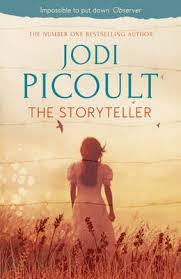“Che: A Revolutionary Life,” Jon Lee Anderson
Anderson’s biography of the controversial revolutionary Che Guevara is stunning in its thoroughness. Beginning with his birth and even going back into the story of his parents and grandparents, and ending not with his death, but rather with the discovery of his body and subsequent burial in Santa Clara, Cuba, Anderson leaves no stone unturned. Through his writing, readers learn not only about Che and his revolutionary life, but also about every country that Che touched, including Argentina, Guatemala, Cuba, the Congo, and of course, Cuba.
Only a few minor details (besides his name) give him away for a gringo. In Hispanic culture, cats have seven lives, instead of nine if you’re from North America (holla!), and Anderson points this out in his narrative as something curious and probably a mistake, when it is not. Anderson also delves into the history of Argentina, mentioning Sarmiento, a prolific writer and politician (and eventual president), not as the racist person that he was, but as a great writer with interesting ideas. Contemporary readings, and maybe some readings that are not so contemporary, have been quick to point out the racist ideas and policies of Sarmiento, and Anderson should have done his research about Sarmiento just as thoroughly as he did with the life of Che.

La biografía de Anderson del revolucionario polémico Che Guevara es impresionante en su meticulosidad. Empieza con su nacimiento y incluye hasta la historia de sus padres y abuelos, y termina no con su muerte, pero con el descubrimiento de su cuerpo y el subsecuente entierro en Santa Clara Cuba. Anderson remueve cielo y tierra para proveer la historia más completa de Che. Por su escritura, los lectores aprenden no sólo sobre Che y su vida revolucionaria, sino también sobre cada país que tocó Che–Argentina, Guatemala, Cuba, Congo, y, claro, Cuba.
Sólo unos detalles menores (además de su nombre) revela que el autor es un gringo. En la cultura hispana, los gatos tienen siete vidas, en vez de las nueve de Norteamérica y Anderson dice en su narrativa que es algo curioso y probablemente un error, cuando no lo es. También Anderson indaga en la historia de Argentina, mencionando a Sarmiento, un escritor prolífico y un político (y presidente eventualmente), no como el racista que fue, pero como un gran escritor con ideas interesantes. Las interpretaciones modernas, y quizá algunas que no sean tan modernas, han sido prestas para señalar las ideas y reglas racistas de Sarmiento, y Anderson debería haber hecho su investigación sobre Sarmiento de la misma manera en que investigó la vida de Che.
~~~
“The Storyteller,” Jodi Picoult
I have been enamored by Picoult’s work for a long time now, as each novel she writes deals with different social topics in a beautifully crafted narrative that is both complex and stunning, yet easy to understand and attention grabbing. The Storyteller began in the same way when the main character is asked by an older man to help him die, thus introducing assisted suicide as the theme of her novel. Or so I thought. Almost as soon as the main character begins to contemplate whether she should help her friend, the story takes a nosedive into World War II and the activities of the Nazis. And continues this way for more than half of the book. By the time the Nazi subplot was more or less finished, less than 100 pages of the book was left. This is not to say that World War II and the Nazis are not an honorable and interesting topic to write about; moreso that Picoult’s attempt to talk about assisted suicide was almost a complete failure.
Perusing reviews of the novel, it can be seen that forgiveness is thought to be the main theme of the novel, which is also a fine topic, but bringing up assisted suicide and then leaving it with almost no exploration into its morality (or lack thereof) and/or effect on society is not acceptable.

He sido enamorada con las obras de Picoult por muchos años, como cada novela se trata de diferentes temas sociales en una narrativa hermosamente elaborada que es impresionante y compleja, pero también fácil para entender y interesante. The Storyteller empezó en la misma manera cuando un viejito le pide a la protagonista para ayudarlo a morir, introduciendo el tema de la novela como el suicidio asistido. O como pensaba. En cuanto la protagonista empieza a contemplar la solicitud, la novela gire completamente a la Segunda Guerra Mundial y las actividades de los Nazis. Y continua así por más de mitad de la novela. Cuando esta trama secundaria termina más o menos, menos que 100 páginas quedan. No quiero decir que la Segunda Guerra Mundial y los Nazis no son temas valiosos e interesantes, sino que el intento de Picoult para escribir sobre el suicidio asistido fue un fracaso.
Mientras leyendo las críticas de la novela, se puede ver que mucha gente piensa que la clemencia es el tema central de la novela, lo cual es un buen tema también, pero para hablar tan ligeramente sobre el suicidio asistido y no hablar sobre su moralidad (a la falta de esa), y/o su efecto en la sociedad no es aceptable.